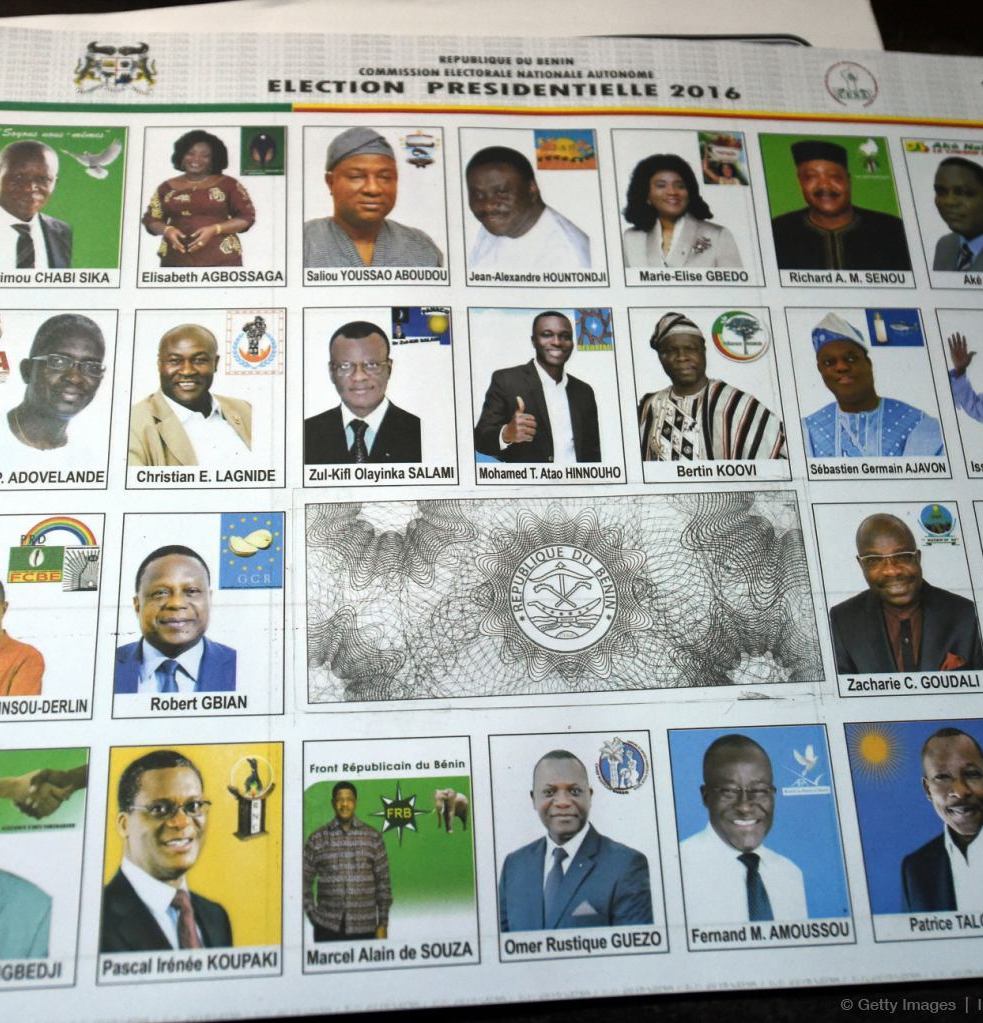Benin goes to the polls with bumper ballot box featuring 33 presidential hopefuls
Polls opened in Benin on Sunday in an election to replace President Thomas Boni Yayi who is stepping down after two terms, leaving 33 candidates to vie for power in the small West African nation. Leading the field is Prime Minister Lionel Zinsou, a former economist and investment banker backed by the president and the main opposition Democratic Renewal Party. Benin produces cotton but its economy is flagging, in part because a fall in oil prices has hit its giant neighbour Nigeria.
I have just voted. It’s a matter of pride for me to have done my duty as a citizen. My candidate will win. I don’t think there will be too many (logistical) difficulties.
Clarisse Nibime who voted in the capital
A big choice facing voters is who best can create jobs and improve education. The election began slowly in the capital with agents laying out materials and small lines of voters forming at polling stations, a witness said. While Zinsou is the favourite, the 61-year-old has come under fire for his French connections against him, with critics calling him an outsider “parachuted” in by former colonial power France. Other top candidates include cotton magnate Patrice Talon, regarded by many as Benin’s richest man; businessman Sebastien Alavon, who made his fortune in the food industry; former premier Pascal Koupaki; and Abdoulaye Bio Tchane, a former Africa director of the International Monetary Fund.
People say I’m white, an interloper, a foreigner, a Frenchman, a colonialist. But there’s perhaps 10 percent of people who act like that.
Frontrunner Prime Minister Lionel Zinsou

Benin